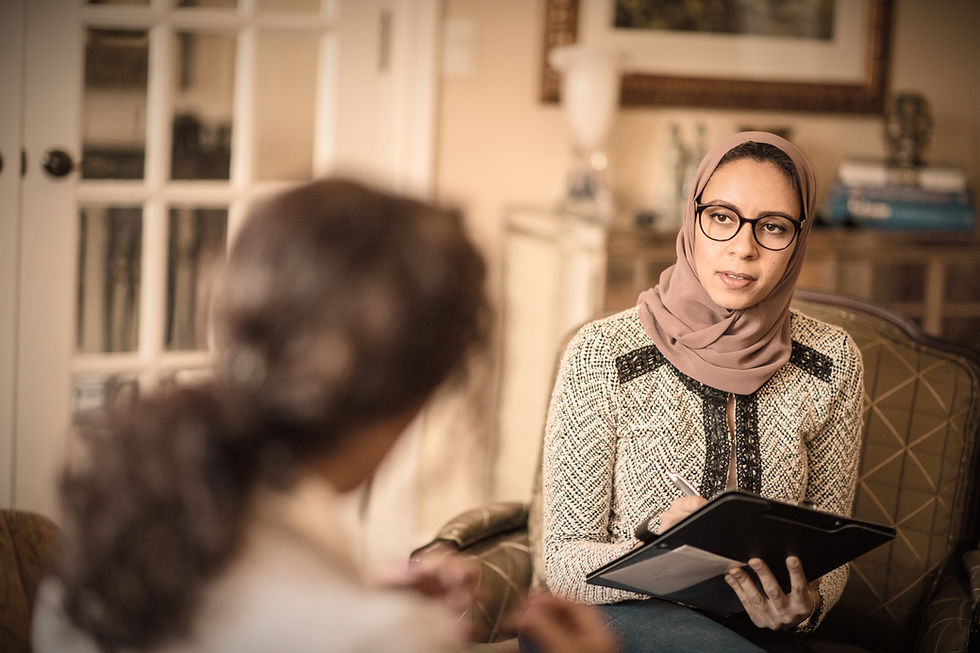Unveiling the Impact of Small Daily Routines in Healing from Trauma | Trauma Therapist Dallas Texas
- ivorycompass

- Aug 12
- 4 min read
Updated: Aug 20
Unveiling the Impact of Small Daily Routines in Healing from Trauma | Trauma Therapist Dallas Texas
Trauma can leave deep emotional scars, affecting every aspect of a person’s life. While traditional therapy and support systems are essential for recovery, small daily routines often play a powerful role that goes unnoticed. These daily habits lay a foundation for healing, providing the structure and stability necessary to rebuild life after trauma. As a Trauma Therapist in Dallas, Texas, I often encourage clients to explore how simple, consistent routines can support their recovery process.
Understanding Trauma and Its Effects
Trauma can arise from various experiences, including abuse, accidents, or loss. It can show up in many ways, impacting mental health, relationships, and overall well-being. Many individuals experience anxiety, depression, or feelings of isolation during their recovery journey.
For instance, research shows that around 70% of adults in the U.S. have experienced a traumatic event at least once during their lives. Out of these, about 20% develop post-traumatic stress disorder (PTSD). Establishing small routines can help individuals regain a sense of control and normalcy. By creating predictable patterns in daily life, people can lower feelings of uncertainty and anxiety, particularly common in the aftermath of trauma.
The Role of Small Routines in Recovery
Small routines act as anchors in the turbulent sea of trauma recovery. They provide a sense of purpose and accomplishment, regardless of how minor the task appears. Engaging in these routines can foster resilience and encourage healing by:
Creating Structure – Daily routines help establish order. This structure benefits those who feel overwhelmed by their emotions or circumstances. For example, starting the day with a consistent morning routine can prepare individuals mentally for the day ahead.
Encouraging Mindfulness – Small routines such as morning meditation or evening journaling promote mindfulness. Research has shown that practicing mindfulness can reduce anxiety by 30% and improve overall emotional well-being.
Building Coping Skills – Regularly incorporating small routines can help develop coping skills. For instance, dedicating time for physical exercise, like a 20-minute walk in nature, can serve as a healthy outlet for processing emotions.
Fostering Connection – Routines that promote social interaction, like weekly coffee dates with friends or family, help counter feelings of isolation. Strong connections are vital for emotional support during recovery. A study revealed that social support can reduce the risk of PTSD symptoms by almost 50%.
Practical Tips for Incorporating Small Routines
Creating effective small routines requires intention and consistency. Here are some actionable tips to help incorporate these routines into daily life:
Start Small – Choose one or two routines that feel manageable. It might be as simple as making your bed each morning or taking a brisk walk after lunch. Gradually build upon these routines as they become more comfortable.
Set Reminders – Use reminders to help establish new routines. You could set an alarm on your phone or place sticky notes in visible areas. Regular reminders reinforce the habit and ensure consistency.
Be Flexible – While routines are crucial, staying flexible is equally important. Life’s unpredictability can disrupt plans, and it’s okay to adjust your routines when necessary. The aim is to create a supportive structure rather than introducing more stress.
Reflect on Progress – Set aside time to reflect on how these routines affect your mental health and overall well-being. Journaling your experiences offers insights into what works best and helps track your progress over time.
Seek Support – Consider sharing your routines with a therapist or support group. A Trauma Therapist in Dallas, Texas can provide encouragement, accountability, and personalized strategies to support your healing journey.
The Power of Consistency
Consistency is vital for the effectiveness of small routines. Regular engagement in these practices can lead to positive changes in mental health. Over time, individuals may notice improvements in their mood, greater resilience, and a stronger sense of control over their lives.
Building a Routine That Works for You
Everyone’s journey through trauma recovery is unique. Tailor your routines to fit your individual needs and preferences. Here are a few examples of small routines that can be beneficial:
Morning Ritual – Start your day with a calming routine. This could involve stretching, deep breathing, or sipping tea in silence for a few minutes.
Gratitude Practice – Each day, take a moment to write down three things you are grateful for. This simple practice can shift your focus from negative thoughts to positive aspects of life.
Evening Wind-Down – Create a calming evening routine that might include reading, journaling, or practicing relaxation techniques before bedtime to foster better sleep.
Navigating the Path to Healing | Trauma Therapist Dallas Texas
The journey of trauma recovery is often long and challenging, but small daily routines can serve as powerful tools in the healing process. By establishing structure, promoting mindfulness, and fostering connections, these routines can help individuals regain a sense of control and stability in their lives.
As a Trauma Therapist based in Dallas, Texas, I encourage clients to embrace these daily practices with patience and compassion. Healing takes time, and every small step counts. By incorporating intentional routines, you can build resilience and move toward a brighter, healthier future.






Comments